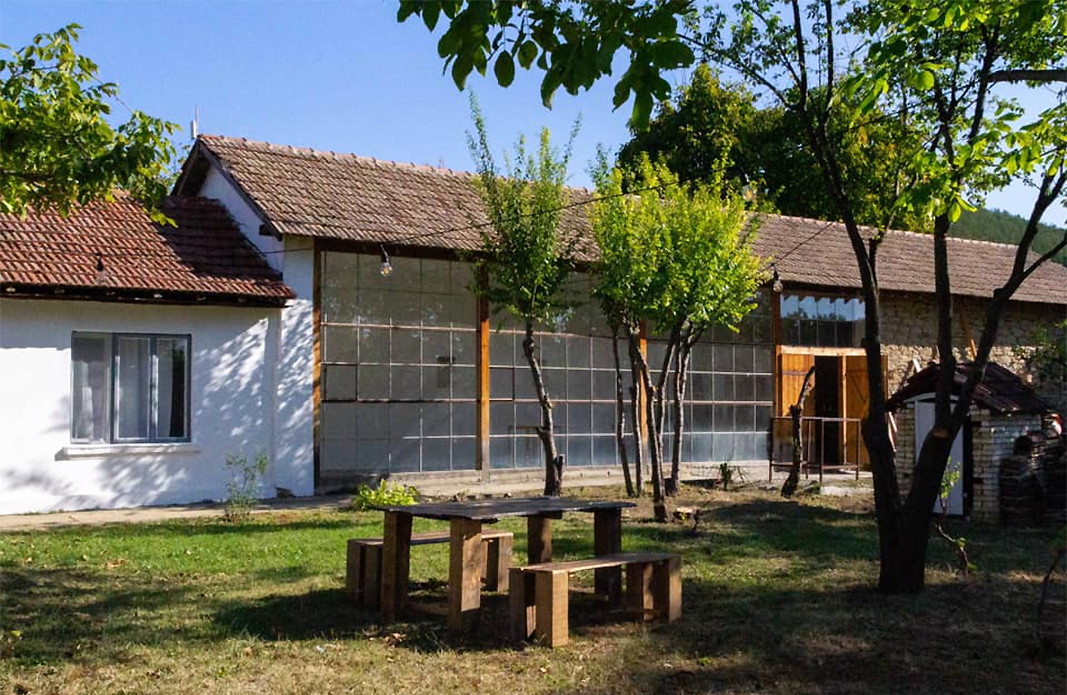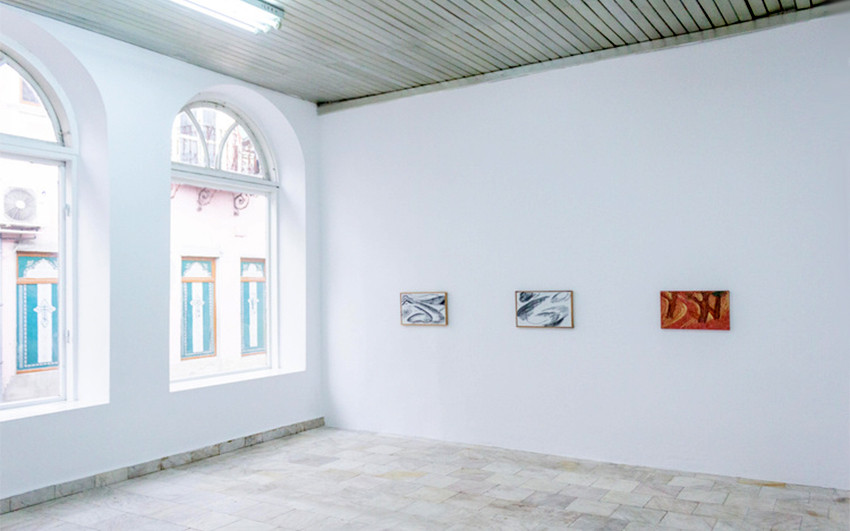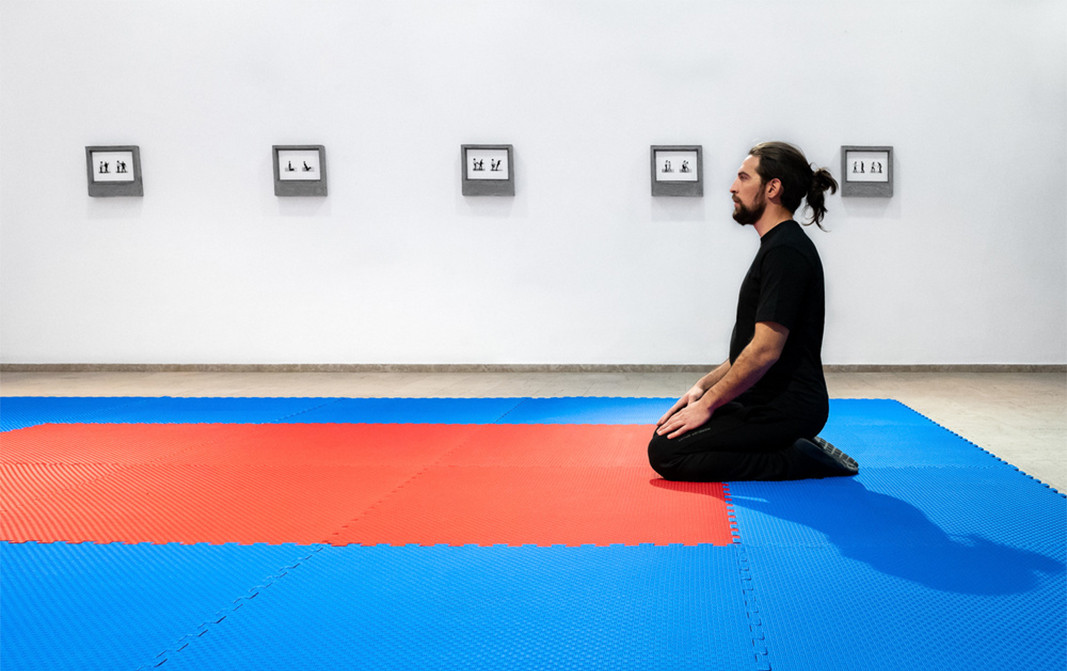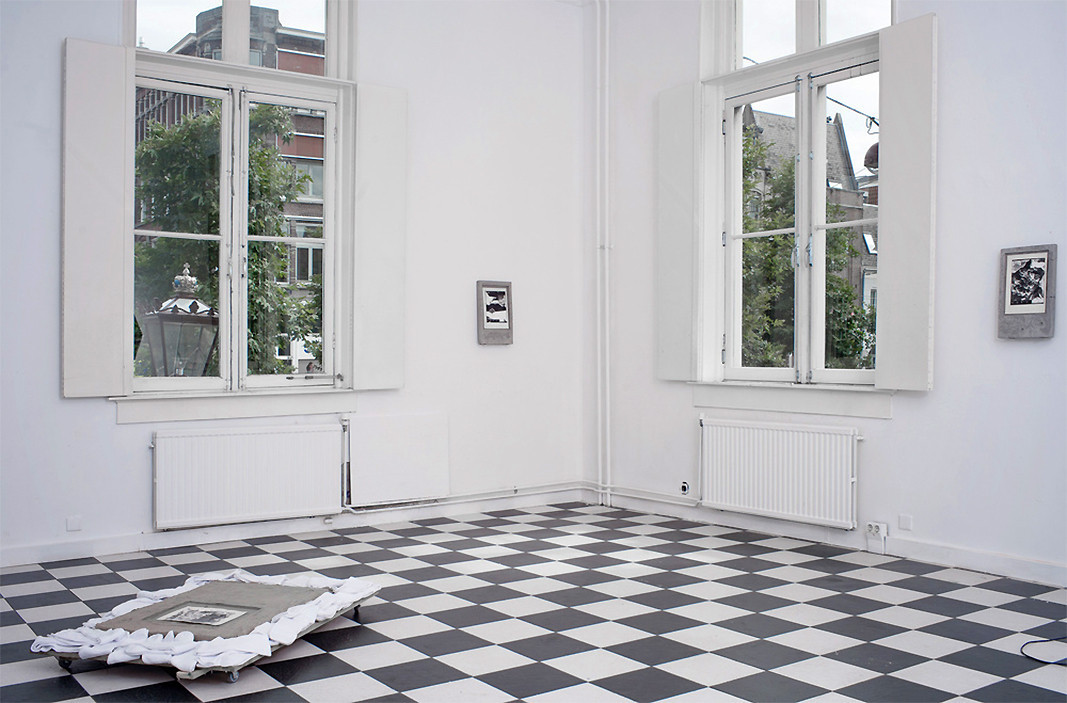A sip of modernism and abstract beauty - this is what a tiny art gallery in Veliko Tarnovo - the former Bulgarian capital with a millennial-long history, where the past reminds of itself at every step - offers. But on a quiet street in the old town, one seems to get immersed into a different reality, directed not to the past, but to the present and even to the future.

The contemporary art gallery Heerz Tooya was founded in 2019 by Norwegian visual artist Lars Nordby. It exhibits authors who are visiting the creative residence in the nearby village of Vishovgrad. It turns out that Lars' father is an artist and back in 2005 he bought an old house in the village, which he gradually turned into a cultural centre for artists from all over the world.

When Lars visited Vishovgrad for the first time in 2017, he felt really excited about the idea of continuing the initiative. Thus, two years later, the gallery was born, named after a rare species of moth found in Mexico. Every summer, artists from the Netherlands, Denmark, Sweden and other countries gather in Vishovgrad to create their art, and then their works are exhibited in the Veliko Tarnovo gallery located in the heart of its old town.

"I really wanted to initiate a place for contemporary art. Because there aren't many such spaces here, and I decided that this would be good not only for the town itself, but also for me, since I run a creative residency where artists focusing on contemporary art work. We gather mostly in the summer - from May to September. Outside of this season, Bulgarian and other artists also exhibit in the gallery. So we do an average of one to three exhibitions a month. We are in a small town, but we have a busy schedule. The gallery has grown, we maintain relations with other galleries and cultural institutes in the country, many people visit us, including tourists”.

Lars explores the vast spaces of photography, performance and art installations. He graduated from the National Academy of Arts in Oslo in 2016. He is excited by theatrical aesthetics in everyday life and the quest for identity and ideological affiliation in the modern chaotic world of contradictions and uncertainty. However, the Norwegian visual artist refuses to associate his art with politics. "In my everyday life, I try not to focus on negative things, I try to be positive and constructive," says Lars.

In 2021, the Norwegian provoked the visitors of the Sofia-based gallery "Credo Bonum" with the exhibition ASTROTURFING AD HOCKERY, where he mixed different martial arts with the social environment in search of the border between creativity and life. Now Lars Nordby is working on a performance in Italy, as well as a photo project, which he will present to the Viennese public. He is also preparing for his next exhibition in Sofia, which will be opened at the Institute of Contemporary Art in November.

"In cooperation with the curator Snezhana Krasteva, we are preparing a constellation of my previous works in a new exhibition project. This will be a sort of remix of my three previous exhibitions from 2016 in Norway, Copenhagen and Amsterdam. The concept I'm working on is a continuation of my creative searches related to identity politics and power structures from the point of view of theatricality and everyday life. This art installation will stay for 3 months at the Institute of Contemporary Art in Sofia. I am glad that in this way I will also send a creative greeting to my Bulgarian colleagues," Lars Nordby admits.
Photos: Lars Nordby’s private archive
Sofia is hosting the finals of ER Champ 2025 — described by the organisers as the world’s largest international escape room competition . Taking place on 19 and 20 October, the event will bring together twelve teams from around the globe , each of..
More than 500 people from across Bulgaria are gathering today in the village of General Todorov, near Petrich, for the national festival “Once Upon a Time… When Bread Had a Soul,” the village mayor, Stanislav Stankov, has announced. Now in its fourth..
Veliko Tarnovo is hosting the Urban Wine Fest, organised by the Bulgarian Association of Wine Professionals. "October is the month of Bulgarian wine and the richness of our local grape varieties," said Daniel Dragoshinov, a member of the association, as..
Veliko Tarnovo is hosting the Urban Wine Fest, organised by the Bulgarian Association of Wine Professionals. "October is the month of Bulgarian wine and..
Sofia is hosting the finals of ER Champ 2025 — described by the organisers as the world’s largest international escape room competition . Taking place on..
More than 500 people from across Bulgaria are gathering today in the village of General Todorov, near Petrich, for the national festival “Once Upon a..

+359 2 9336 661
